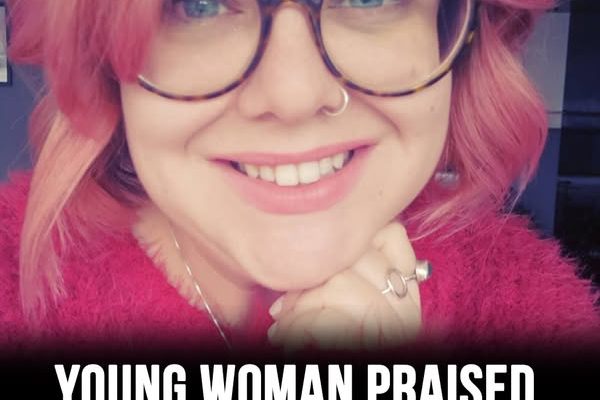However, some individuals may question whether this change in interest is influenced by external factors or if there are underlying pressures at play.
Is it genuinely a fluid identity, or are there hidden factors contributing to the confusion and uncertainty surrounding it? Emma’s long-standing uncertainty prompts us to question the extent to which our understanding of s*xuality is influenced by societal norms versus our own authentic emotions.
Is it possible that the concept of abros*xuality could be misinterpreted or even manipulated by individuals seeking clarity in a society that constantly seeks rigid categorizations? This enigmatic element adds to the intrigue of the narrative, compelling us to delve deeper and ponder the hidden layers of attraction and identity.
Attraction doesn’t always follow a linear path — for some, it evolves and transforms over time. This perplexing situation is more prevalent than most people think, and it has a specific term: abros*xuality.
Initially believed she was a lesbian.
Let’s delve into the concept of abros*xuality, and how one writer’s 30-year journey shed light on this frequently misunderstood identity.
In a touching article published by metro uk in July 2024, writer Emma Flint shared her personal journey of self-discovery, revealing that she had been abros*xual for the past three decades, struggling to understand the ever-changing nature of her attractions.
At the age of 32, flint recalled a series of thoughts and experiences that made her question her s*xual orientation, leading to feelings of attraction towards men, and eventually feeling disconnected from anyone.
For years, she felt ‘lost’ and ‘uncertain of who she was.’.
‘i felt like i was drifting at sea,’ flint shared
‘it wasn’t that i couldn’t decide, but that my identity shifted,’ she explained ‘My s*xual orientation was flexible.’.
Everything became clear when she stumbled upon the term ‘abros*xual’ while browsing an online forum.
‘at last,’ she wrote, ‘i felt seen
What is the definition of abros*xuality?
According to healthline, abros*xuality is a lesser-known lgbtq+ identity that describes s*xual attraction that frequently changes.
An abros*xual individual experiences changes in their s*xual orientation, where they may identify as gay at one point, then feel attracted to all genders, and at other times, experience little or no s*xual attraction.
Unlike labels like homos*xual, bis*xual, heteros*xual, or pans*xual, which define attraction based on gender, abros*xuality emphasizes that s*xual attraction can change over time, regardless of gender.
Flint expresses, ‘I adore the individual, not their gender, so it doesn’t matter if my s*xual orientation evolves while I’m with them.’.
She also highlights the annoyance of some individuals who demand she ‘choose a lane’ so they won’t feel uneasy. ‘just because someone doesn’t comprehend an identity doesn’t mean it isn’t genuine,’ she emphasized.
What does being as*xual look like?
Abros*xuality differs greatly among individuals. Healthline provides illustrations to clarify:
Daily shifts: you might feel attracted exclusively to men one day and only to women the next.
gradual changes: you could be attracted to all genders for months, then notice your attraction shifting towards one gender.
Changing attraction: at times experiencing a lack of s*xual attraction (similar to as*xuality), only to have your attraction resurface later, possibly towards different genders.
Long-term evolution: identifying as straight for an extended period, but later discovering attraction to other genders, adding complexity to your identity.
These are just a few examples — there’s no one-size-fits-all approach to experiencing abros*xuality, making it a deeply personal and unique identity.
‘we’re constantly learning about ourselves — that’s part of growth,’ flint wrote
Flint’s narrative is not just about her own experiences — it underscores the significance of language and visibility in enabling individuals to comprehend their own identities. Numerous individuals feel a sense of disconnection or inadequacy because they haven’t been able to articulate their unique experiences.
How do you feel about these names? Share your thoughts and help spread this story so we can start a conversation and make a difference!
Emma’s journey highlights the significance of comprehending and accepting the various ways individuals perceive and engage with attraction. Abros*xuality, with its fluid and ever-changing nature, challenges traditional labels and serves as a reminder that identity is deeply personal and unique to each individual. By sharing her personal narrative, flint aims to challenge societal norms and promote greater understanding and acceptance for individuals whose experiences defy conventional categorizations. Ultimately, her narrative encourages us all to be more receptive and empathetic as we continue to discover the diverse aspects of human identity.

